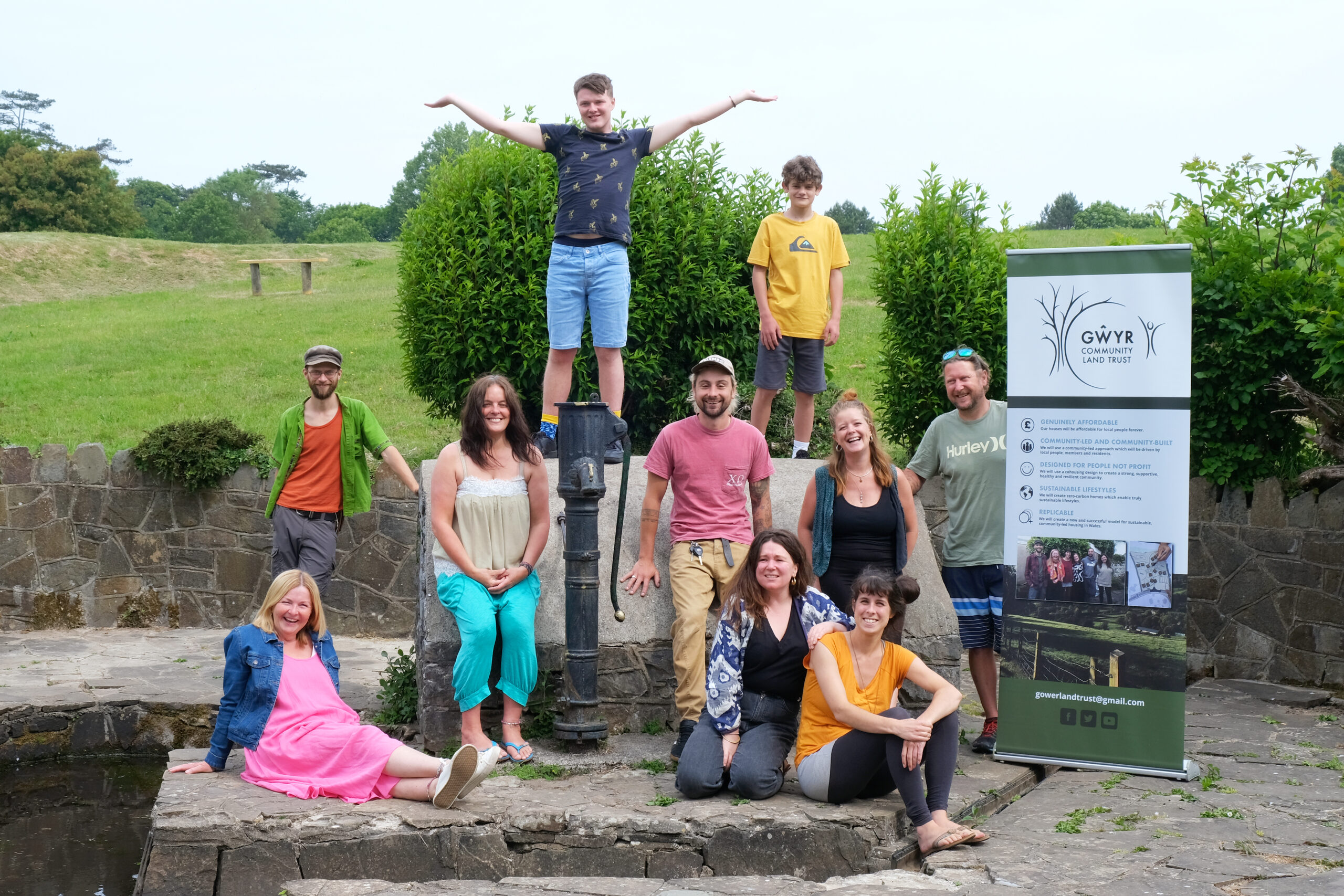A landmark update to the national planning framework, Planning Policy Wales, underlines the Welsh Government’s commitment to community-led housing, highlighting the vital role of Community-Led Housing (CLH) organisations in delivering affordable housing.
What is PPW and what changes have been made?
Planning Policy Wales (PPW) sets out the land use planning policies of the Welsh Government. The primary objective of PPW is to ensure the planning system contributes towards sustainable development and improves the social, economic, environmental, and cultural wellbeing of Wales. A well-functioning planning system is fundamental for sustainable development and achieving sustainable places.
In February 2024, following lobbying from Cwmpas, the Welsh Government released an update to PPW which includes a reference to CLH organisations’ ability to deliver local authority affordable housing requirements.
For the purpose of the land use planning system, affordable housing means homes that are available to people who can’t afford regular market prices. This applies not only when the home is first occupied, but also for anyone who subsequently lives there.
Cwmpas’ Communities Creating Homes programme, funded by the Nationwide Foundation and the Welsh Government, supports community groups and organisations across Wales to develop innovative community-led solutions, tackling the housing crisis by delivering more affordable housing that meets local needs. We are currently supporting 36 CLH projects across Wales, projected to deliver 235 affordable homes for people in need.
A good example is Gwyr Community Land Trust, a group of local families in Swansea working towards delivering a co-housing scheme of fourteen affordable homes for local people, with the support of Cwmpas.
Nefyn Town Trust, based in Pwllheli, is a pioneering CLH organisation established one hundred and thirty-three years ago, with the primary objective of providing high-quality homes to rent at affordable rates for local people in the town. Cwmpas is supporting them to expand their existing offer by developing four new affordable homes for local people.
Current challenges
Until now, some local planning authorities in Wales have been unaware or reluctant to accept that CLH organisations can deliver affordable homes for people in need. This has been frustrating for the community groups we are supporting, who felt they’ve had to jump through additional hoops during the planning process, or have been ignored completely.
We’re often told that CLH is too new, too difficult, too different – so some local planning authorities have been unwilling to help, or have been obstructive during the planning process. With the current housing crisis we are facing, isn’t it time for new, for different, for giving local communities the chance to provide homes that meet their needs and the needs of other local people?
We have always known that CLH organisations can deliver truly affordable homes. They have the same mechanisms as registered social landlords (RSLs) to ensure homes are affordable for the first occupiers, and for every future generation. Community-led housing is part of the solution to tackling the housing shortage, alongside RSLs, local authorities and private developers.
How can CLH help local authorities to meet their strategies?
Community-led housing helps to create genuinely affordable homes that meet local needs. By involving local people, it helps to deliver a diverse range of homes because they are built with local people in mind, not profits. It can help to unlock additional sites for affordable homes, such as small, infill sites that may not be wanted or viable for larger housing developers.
However, it isn’t just about bricks and mortar. It can also deliver wider social, economic, environmental, and cultural benefits, such as improved health and wellbeing, community cohesion, local employment, and reduced carbon emissions.
Research1 has shown that CLH can help improve wellbeing and tackle social isolation and loneliness, creating cohesive, connected, and supportive communities. It can also help people to learn new skills and increase their confidence as they work collectively to create new homes.
It also brings wider community benefits to an area and can encourage wider regeneration and placemaking, by bringing empty spaces and homes back into use. CLH benefits the foundational economy through local ownership of assets and investment of surplus, to benefit the local community.
Local authorities should support CLH initiatives, as a participatory and democratic way of delivering affordable homes and creating sustainable and cohesive communities and spaces.
What impact will the changes have?
The changes to PPW are necessary to address the ongoing housing challenges faced by communities in Wales and confirm that CLH organisations can be a part of the solution. CLH can deliver truly affordable housing in perpetuity for people in need, helping contribute to the 20,000 social homes target set by the Welsh Government.
It is encouraging to see some Local Planning Authorities in Wales starting to recognise that CLH organisations can provide affordable housing for residents and developing their own policies that support CLH. For example, Conwy Council has adopted the Colwyn Bay Place Plan, which includes a goal to explore chances for CLH projects. Similarly, Pembrokeshire County Council and Pembrokeshire Park County Council have provided guidance on how these CLH organisations can deliver affordable homes.
We think every local authority across Wales should recognise the contribution that community-led housing can make to providing more affordable homes and have policies that support CLH initiatives.
Contact co-op.housing@cwmpas.coop for further information on the support available from our Communities Creating Homes programme.










